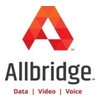Artificial intelligence is pervasive in hospitality. This is partly due to the promise of a revolution in bookings, guest engagement, and operations, and partly to keep up appearances. Hotel operators are enamored with the potential of AI, as the industry continues to try to fully understand the implications for its use. And, while there’s no doubt that AI will eventually be everything it promises, the more important question is: Do operators have the infrastructure in place to ensure that new technologies will have a safe and effective impact on their business? The hospitality industry can sometimes fall a step behind in the adoption of new technology, which is understandable since the core of the business relates to human interaction and the property itself. There are also several other factors that have held back advancements: This lag in advancement means that many properties aren’t where they need to be with regard to infrastructure. A lower investment in fundamental technologies that make everything run means that properties are operating on systems that may be ill-suited, bifurcated, and disconnected from each other, posing security risks and potentially negating any ROI a new tool could offer. AI is one of the top buzzwords in most industries. Solutions providers are fitting AI into products wherever they can, but when you look beyond the marketing it becomes clear many of these solutions aren’t providing anything new or different. Investing in new technology for the sake of it comes with costs and risks that can impact a business in the short term via financial, operational and reputational risks. It’s more important that products provide the right solution and a tangible ROI. That being said, there are practical use cases for AI. It is here to stay and it will continue to evolve to offer new and impactful solutions for properties, allowing improved guest experiences and retention, and a reduced burden for staff. But, properties won’t fulfill the AI/AR promise by taking a legacy approach to technology. This discussion needs to start at the backbone of the systems that will power advanced applications, AI and technology in the property – not start at the end. If a property does not have solid fundamentals in place, the system will not be able to support advanced products. Before jumping into new investments, it’s first important to take stock of a property’s current set up and then develop a long-term strategy to make sure that upgrades can continue to support new and more substantial software and connectivity needs. The following steps provide an overview of how hoteliers can ensure longevity and success for technology. To keep up with the industries, hoteliers will need to embrace new technology solutions, but this needs to be done in a purposeful and strategic manner. By approaching advancement one step at a time and looking at the total cost of operation, ROI, the overall system performance, future benefits, and security and guest satisfaction, properties can ensure that they’re able to implement modern technology solutions and elevate the guest experience.Catching up with technology
Substance over flash
A guideline for success
Organization
Allbridge
https://www.allbridge.com/
6880 Perry Creek Road
USA
- Raleigh, NC 27616
Email: emarchbanks@allbridge.com
Recent News
 For Hospitality Leaders, Infrastructure Should Come Before the Lure of Artificial Intelligence | By Todd Johnstone For Hospitality Leaders, Infrastructure Should Come Before the Lure of Artificial Intelligence | By Todd Johnstone |
 Allbridge and Ipanema Solutions Merge to Simplify Technology Implementation for Hotels Allbridge and Ipanema Solutions Merge to Simplify Technology Implementation for Hotels |
 Allbridge Announces Introduction of TraknProtect Staff Alert Solution with Ruckus Networks IoT Suite Integration Allbridge Announces Introduction of TraknProtect Staff Alert Solution with Ruckus Networks IoT Suite Integration |